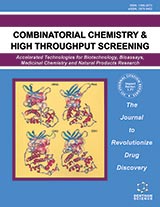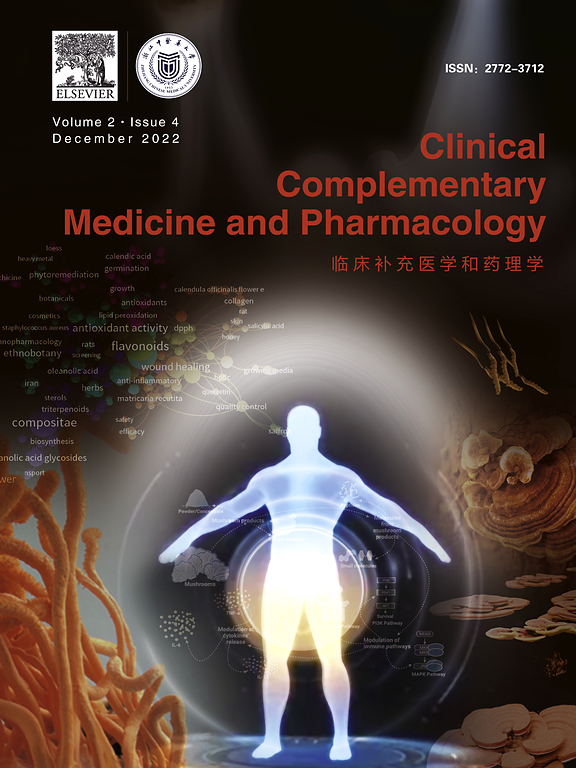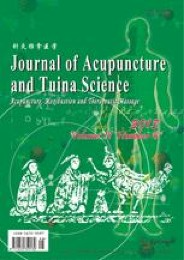Ovarian Insufficiency
How to submit an article:
- Registered users can submit any published journal article that has a unique DOI (Digital Object Identifier) name or link to Research Hub.
- For example, you can paste the full DOI link:
https://doi.org/10.1109/5.771073or just the DOI name:10.1109/5.771073into the field above and click submit. - The person who is first to submit a valid article to Research Hub will forever be credited for it, and every article submission earns you +6 Research Points.
Also known as: Decreased Ovarian Reserve, Premature Ovarian Failure, Premature Ovarian Insufficiency
Published research studies are articles that present the findings of original research that has undergone a peer-review process and has been made publicly available in scholarly journals, books or other media.

Propolis protects ovarian follicular reserve and maintains the ovary against polycystic ovary syndrome (PCOS) by attenuating degeneration of zona pellucida and fibrous tissue
2022 Dec Biochemical and Biophysical Research Communications Sapmaz T, Sevgin K, Topkaraoglu S, Tekayev M, Gumuskaya F, Efendic F, et al.
In conclusion, a lower dose of propolis (50 mg/kg) exerts more therapeutic effects than a higher dose (150 mg/kg) in rats with PCOS, while the excessive consumption of propolis has no further therapeutic effect.
Network Pharmacology Animal Study Ovarian Insufficiency Propolis PCOS
A Network Pharmacology Study on the Similarities and Differences in the Mechanisms of Zuo Gui Wan/You Gui Wan for the Treatment of Premature Ovarian Failure
2022 Oct 18 Combinatorial Chemistry & High Throughput Screening Shanshan Mei, Chaoqin Yu, Jie Ding, Wen Cheng
Network Pharmacology Zuo Gui Wan You Gui Wan Premature ovarian failure (POF) Ovarian InsufficiencyThe Chinese medicine formulas Zuo Gui Wan and You Gui Wan have the potential to treat premature ovarian failure through different pharmacological pathways.

Ningxin Tongyu Zishen Tang in Treatment of Premature Ovarian Insufficiency: A Retrospective Control Study
2022 Aug Clinical Complementary Medicine and Pharmacology Yan X, Zhang Z, Ma J, Zhang Y
The study found that Ningxin Tongyu Zishen Tang (NTZT) could restore menstruation and improve the levels of sex hormone in patients with premature ovarian insufficiency (POI). It was also found that NTZT could eliminate the feelings of vexation, insomnia and dreamfulness, as well as tidal fever and sweating, aching pain of loins, and vaginal dryness significantly.
Ningxin Tongyu Zishen Tang (NTZT) Ovarian Insufficiency
Current Research on Complementary and Alternative Medicine in the Treatment of Premature Ovarian Failure: An Update Review
2022 Jun 23 Evidence-Based Complementary and Alternative Medicine Li Y, Yan MY, Chen QC, Xie YY, Li CY, Han FJ
In recent years, clinical and scientific researchers have paid more attention to POF and its associated symptoms such as amenorrhea and infertility. As the research has progressed, more and more CAM therapies have become widely accepted and well used, including herbal medicine, acupuncture, psychology, exercise, vitamins, massage, diet, etc. These therapies can significantly improve the patient's symptoms and hormone levels and can be used in combination with other treatments to enhance their efficacy.
Review Article Ovarian Insufficiency Complementary Medicine
Complementary and Alternative Medicine for Premature Ovarian Insufficiency: A Review of Utilization and Mechanisms
2022 Apr 01 Evidence-Based Complementary and Alternative Medicine Yang Fu, Dan-Ni Ding, Ying Shen, Li-Yan Jia, Meng-Yu Yan, Wei Wei, et al.
Review ArticleResearch insights are moderated by the Research Hub team and offer an at-a-glance overview of interesting research findings.

2022 Combinatorial Chemistry & High Throughput Screening
The Chinese medicine formulas Zuo Gui Wan and You Gui Wan have the potential to treat premature ovarian failure through different pharmacological pathways.
Network Pharmacology Premature ovarian failure (POF) You Gui Wan Zuo Gui Wan
A Network Pharmacology Study on the Similarities and Differences in the Mechanisms of Zuo Gui Wan/You Gui Wan for the Treatment of Premature Ovarian Failure
Shanshan Mei, Chaoqin Yu, Jie Ding, Wen Cheng

2020 Complementary Therapies in Medicine
In a meta-analysis of 14 trials with 1030 women, acupoint stimulation and Chinese Herbal Medicine were effective in improving menstrual cycles, perimenopausal symptoms, and sex hormone levels in comparison to Hormone Replacement Therapy.
Systematic Review Chinese Herbal Medicine
Acupoint stimulation and Chinese herbal medicines for the treatment of premature ovarian insufficiency: A systematic review and meta-analysis
Li Y, Xia G, Tan Y, Shuai J

2020 Journal of Acupuncture and Tuina Science
The present study indicated that acupuncture had an advantage over hormone replacement therapy in reducing serum FSH level and increasing serum E2 level in women with premature ovarian insufficiency.
Systematic Review HRT Ovarian Function Women's Health
Acupuncture for premature ovarian insufficiency: a systematic review and meta-analysis
Yin, Yq., Xu, Hf., Fang, Yg. et al.

2015 Evidence-Based Complementary and Alternative Medicine
Acupuncture may impact Luteinized Unruptured Follicle Syndrome (LUFS) by lowering FSH, increasing E2, and resuming menstruation.
Systematic Review
Effectiveness of Acupuncture for Primary Ovarian Insufficiency: A Systematic Review and Meta-Analysis
Jo J, Lee YJ, Lee H
Review Articles
Review articles summarise and critically evaluate the current state of research on a specific topic or field by synthesising multiple primary research studies.

Current Research on Complementary and Alternative Medicine in the Treatment of Premature Ovarian Failure: An Update Review
2022 Jun 23 Evidence-Based Complementary and Alternative Medicine Li Y, Yan MY, Chen QC, Xie YY, Li CY, Han FJ
In recent years, clinical and scientific researchers have paid more attention to POF and its associated symptoms such as amenorrhea and infertility. As the research has progressed, more and more CAM therapies have become widely accepted and well used, including herbal medicine, acupuncture, psychology, exercise, vitamins, massage, diet, etc. These therapies can significantly improve the patient's symptoms and hormone levels and can be used in combination with other treatments to enhance their efficacy.
Review Article Ovarian Insufficiency Complementary Medicine
Complementary and Alternative Medicine for Premature Ovarian Insufficiency: A Review of Utilization and Mechanisms
2022 Apr 01 Evidence-Based Complementary and Alternative Medicine Yang Fu, Dan-Ni Ding, Ying Shen, Li-Yan Jia, Meng-Yu Yan, Wei Wei, et al.
Review Article
Acupoint stimulation and Chinese herbal medicines for the treatment of premature ovarian insufficiency: A systematic review and meta-analysis
2020 Nov Complementary Therapies in Medicine Li Y, Xia G, Tan Y, Shuai J
Systematic Review Meta-Analysis Chinese Herbal Medicine Ovarian InsufficiencyIn a meta-analysis of 14 trials with 1030 women, acupoint stimulation and Chinese Herbal Medicine were effective in improving menstrual cycles, perimenopausal symptoms, and sex hormone levels in comparison to Hormone Replacement Therapy.

Acupuncture for premature ovarian insufficiency: a systematic review and meta-analysis
2020 Feb 24 Journal of Acupuncture and Tuina Science Yin, Yq., Xu, Hf., Fang, Yg. et al.
Systematic Review Meta-Analysis Ovarian Insufficiency Women's Health Ovarian Function HRTThe present study indicated that acupuncture had an advantage over hormone replacement therapy in reducing serum FSH level and increasing serum E2 level in women with premature ovarian insufficiency.

Effectiveness of Acupuncture for Primary Ovarian Insufficiency: A Systematic Review and Meta-Analysis
2015 May 18 Evidence-Based Complementary and Alternative Medicine Jo J, Lee YJ, Lee H
Systematic Review Meta-Analysis Ovarian InsufficiencyAcupuncture may impact Luteinized Unruptured Follicle Syndrome (LUFS) by lowering FSH, increasing E2, and resuming menstruation.
Clinical Trials
Clinical trials are research studies that involve people and are conducted to evaluate the safety and efficacy of new treatments or interventions, such as drugs, medical devices, or behavioural therapies.
Study Protocols
Published study protocols are detailed plans that outline the objectives, methodology, statistical analyses, and organisation of a research study that have been made publicly available for others to review and use as a reference.
Presentation Slides

Network Pharmacology
The Chinese medicine formulas Zuo Gui Wan and You Gui Wan have the potential to treat premature ovarian failure through different pharmacological pathways.
Shanshan Mei, Chaoqin Yu, Jie Ding, Wen Cheng

Systematic Review
In a meta-analysis of 14 trials with 1030 women, acupoint stimulation and Chinese Herbal Medicine were effective in improving menstrual cycles, perimenopausal symptoms, and sex hormone levels in comparison to Hormone Replacement Therapy.
Li Y, Xia G, Tan Y, Shuai J

Systematic Review
The present study indicated that acupuncture had an advantage over hormone replacement therapy in reducing serum FSH level and increasing serum E2 level in women with premature ovarian insufficiency.
Yin, Yq., Xu, Hf., Fang, Yg. et al.

Systematic Review
Acupuncture may impact Luteinized Unruptured Follicle Syndrome (LUFS) by lowering FSH, increasing E2, and resuming menstruation.
Jo J, Lee YJ, Lee H
Executive Summary
Write an executive summary in the form of a blog article on the topic of "Research into Chinese medicine treatment for Ovarian Insufficiency" summarising the research below and using language that can be easily understood by patients and avoiding medical jargon using a professional and caring tone of voice.
Write an executive summary in the form of a blog article on the topic of "Researched Chinese medicine treatments for Ovarian Insufficiency" summarising the research below in an objective and easy to understand way, and using language that can be easily understood by patients. Group the article into Chinese medicine treatments first, followed by nutrition and other treatments. Avoid using medical jargon and use a professional and caring tone of voice.
Write me a concise but easy to understand executive summary on the topic of "Chinese medicine treatments for Ovarian Insufficiency" based on the following research that I will give you. Your summary should be 2 paragraphs long in Australian English spelling and include references to the studies.
A Network Pharmacology published in 2022 in the journal Combinatorial Chemistry & High Throughput Screening found that The Chinese medicine formulas Zuo Gui Wan and You Gui Wan have the potential to treat premature ovarian failure through different pharmacological pathways. This study used a public database to identify the active ingredients and potential targets of the Zuo Gui Wan and You Gui Wan compounds. These were analyzed in relation to premature ovarian failure (POF) related genes obtained from OMIM and GeneCards. A protein-protein interaction network was established using STRING, and a drug-active ingredient-target gene network was constructed. The study thus identified similarities and differences in potential targets, active ingredients, and enriched pathways between the two compounds. Analyzing the drug-target-pathway network revealed that both compounds contain multiple common active ingredients, as well as unique components, and share several targets in the treatment of POF, showing similar core mechanisms of action. However, each compound also targets some unique pathways, which indicates their differential approaches to POF treatment.
A Systematic Review published in 2020 in the journal Complementary Therapies in Medicine found that In a meta-analysis of 14 trials with 1030 women, acupoint stimulation and Chinese Herbal Medicine were effective in improving menstrual cycles, perimenopausal symptoms, and sex hormone levels in comparison to Hormone Replacement Therapy. In a meta-analysis involving 14 trials with 1030 women experiencing Premature Ovarian Insufficiency (POI), acupoint stimulation and Chinese Herbal Medicine (CHM) were found to offer benefits in normalizing menstrual cycles and improving perimenopausal symptoms, compared to Hormone Replacement Therapy (HRT). These treatments also effectively lowered follicle stimulating hormone levels and increased estradiol levels when compared to HRT. However, there were no significant differences in luteinizing hormone levels or adverse effects between the groups. The conclusion of the study is that acupoint stimulation and CHM can be considered complementary therapies for alleviating menstrual disorders, perimenopausal symptoms, and serum sex hormone levels in POI females.
A Systematic Review published in 2020 in the journal Journal of Acupuncture and Tuina Science found that The present study indicated that acupuncture had an advantage over hormone replacement therapy in reducing serum FSH level and increasing serum E2 level in women with premature ovarian insufficiency. Eight eligible RCTs with a total of 496 POI patients were included in the meta-analysis. The pooled results showed that there was a significant reduction in the basal serum FSH level and a remarkable elevation in the basal E2 level in the acupuncture group when compared with the control. Subgroup analysis showed that compared with HRT, a significant decrease in the FSH level was observed in both acupuncture alone and acupuncture plus HRT, while a remarkable elevation of E2 was only found in acupuncture plus HRT. There was no significant difference in the LH level between acupuncture and HRT, only one trial reported AMH, and no significant difference was found between acupuncture and HRT.
A Systematic Review published in 2015 in the journal Evidence-Based Complementary and Alternative Medicine found that Acupuncture may impact Luteinized Unruptured Follicle Syndrome (LUFS) by lowering FSH, increasing E2, and resuming menstruation. This systematic review and meta-analysis assessed the potential of acupuncture for treating Luteinized Unruptured Follicle Syndrome (LUFS) through Randomized Controlled Trials (RCTs). Analyzing 8 studies involving 620 participants, the review found that acupuncture, whether alone or combined with drugs, could lower follicle-stimulating hormone (FSH) levels and increase the likelihood of menstruation resumption. Serum estradiol (E2) levels significantly increased with acupuncture, while luteinizing hormone (LH) levels showed no clear changes. Limited data on adverse events (AEs) suggested acupuncture's relative safety. However, due to small sample sizes, risk of bias, and varying study methodologies, the overall evidence quality was rated as "low" or "very low." This suggests a potential benefit of acupuncture for LUFS, but further high-quality studies are necessary to establish its effectiveness and safety definitively.
Moderation Tools
Topic
Sign In
Users not signed in are limited to viewing the 5 most recent items of content.